Why foreign farmers are coming back to Ukraine
Like many foreign colleagues, Michael Dihlmann continues to work as a farmer in Ukraine despite the war. The risk of a global food shortage weighs more heavily on the industry.
Michael Dihlmann has one request before he agrees to a meeting to oversee the sowing on his fields in western Ukraine: he doesn’t want to be portrayed as a hero in the media. “I take my hat off to the colleagues who are really in the battle lines in the fields, who have mines in the fields, who sit on the tractors in protective vests – those are the real heroes,” he explains later. He wants to use his voice to make them heard in Germany.
Invest for the children
About an hour’s drive from Ivano-Frankivsk, Dihlmann is cultivating around 550 hectares of land for about seven years – in addition to the local organic farm in the Stendal district in Eastern Germany; he is probably one of the smallest foreign companies in the country. “I’m doing this so maybe one of my little kids will have a chance at farming later on,” he says. He himself is a 14th generation farmer. The farmer is certain that in Germany it is no longer economical to set up a farm and that Europe will continue to grow together. With Ukraine as part of it.
The technology is not yet running smoothly, but Dihlmann does his work on the hilly terrain with routine and skill. Even when the tractor tilts to around 45 degrees and gravity begins to take effect in the cab, he remains relaxed. “Twin wheels,” he comments with a smile; however, with such gradients, some employees would also refuse to drive here. He puts his smartphone aside with the same calmness when he gets the message about the air raid alarm. “A rocket like that costs tens of thousands of dollars, so Putin, who doesn’t have any money anyway, won’t drop it here,” he says.
A safe spot
In the city, next to military installations, he would behave differently – but here the field work had to be done. The airport in Ivano-Frankivsk was one of the first targets of the Russian war of aggression against Ukraine. Airplanes can also occasionally be heard from his field, one can even be seen later nearby; apparently Ukrainian military.
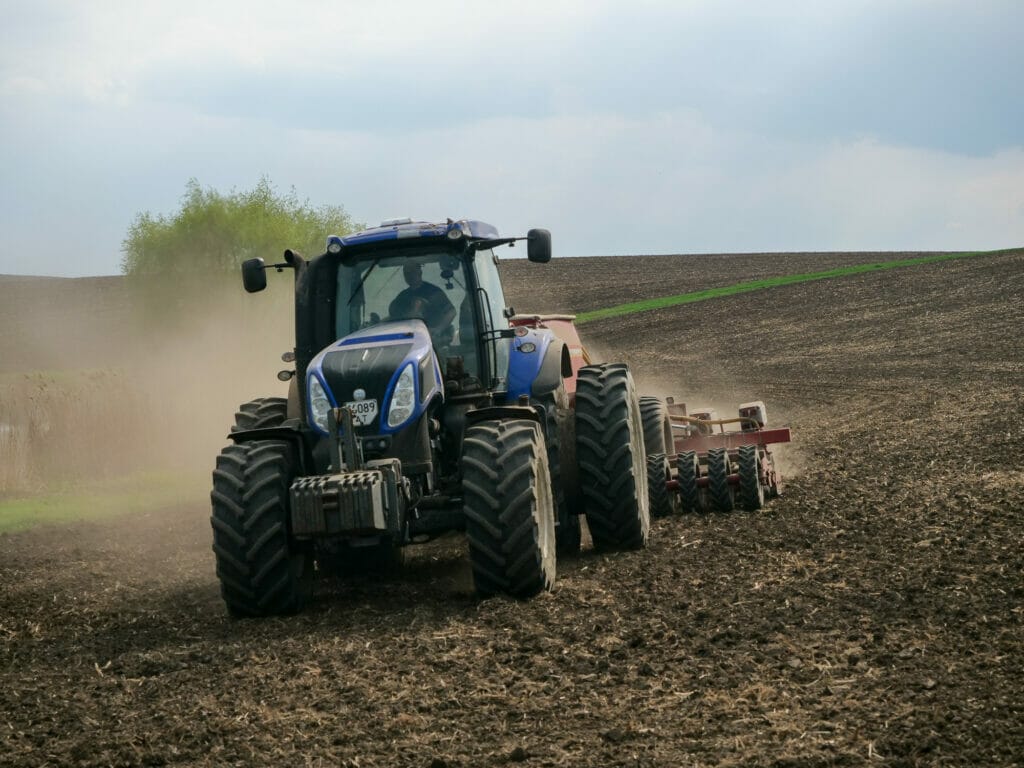
The current situation in his village cannot be compared to that in other parts of Ukraine, emphasizes Dihlmann:
If it gets really tricky, then I’m out of here too. I won’t risk having five orphans at home. I see no danger here. The probability of having a serious accident at work or a car accident on the way here is still greater than suffering military damage here in the village.
He has also found duds and mines in his fields – but from the Second World War. “It was a hotly contested area,” says Dihlmann.
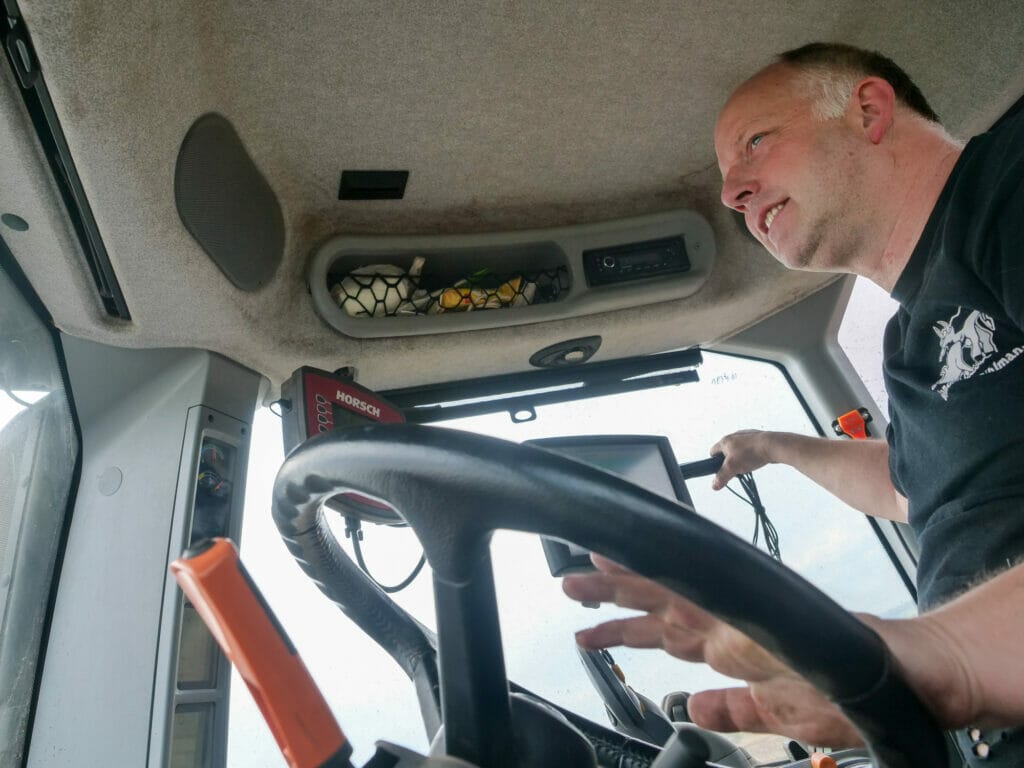
In addition to the war crimes and the suffering in the country, what visibly moves him are the global effects of the war. “It’s an insane disgrace and there’s no justification for it: destroying agriculture and provoking hunger somewhere,” he said, criticizing Putin’s actions. This is even less about Ukraine than about the buyers of agricultural exports who depend on them.
Full storages, collapsed logistics
There is another aspect that Dihlmann definitely wants to draw attention to. “Many people don’t even realize the problem of not having ports in Ukraine,” he explains. Because many of these exports go through here – and the country is largely cut off from this delivery route due to the Russian occupation of the Black Sea region. The warehouses are full of the past harvest. Unlike in Germany, farmers in the Ukraine mainly focus on daily business and try to get the best price. However, they can no longer sell their goods. The land route would be possible, but lack of fuel and customs controls make exports difficult. But even if that were omitted, according to Dihlmann, the calculation would not work out:
“60 million tons of grain are 3 million lorries. That’s not possible at all. “
The international community is also called upon to work out solutions here. Terminals or pipeline elevators at the border, military protection of the ports, increased use of freight trains: there must be something that can be done?! “Any warehouses that we don’t empty now will block the new harvest and can cause that large quantities are destroyed afterwards because they cannot be stored,” he says. Dihlmann warns that this pressure to sell could lead to a decline in producers in Ukraine despite rising world market prices.
Shortage of gas brings further problems
This is also confirmed by Vitali, who works for another German farmer in the region; however, he does not want to be named. Around 12,000 tons per year come together on the 1,700-hectare area alone. “The channels through which the goods go are simply too narrow,” he says. The lack of gas is also causing farmers to worry about the resource-intense drying of maize. But Ukraine is a country that has always somehow found solutions and got the job done even in the worst of times. Vitali smiles and shows the optimism that is widespread among Ukrainians despite all the horrors: “I do believe that we will find a way to end the war as quickly as possible.” Then life in the country will change, East-, Central and Western Ukraine find a unimagined unity.
“Different people live there with different opinions. They speak Russian, Ukrainian, Hungarian or Romanian. Putin wanted to divide the country. And if we can do that, we can be one. “
He has also seen missiles, probably rockets, over his home village. He hasn’t thought about leaving yet; what he couldn’t do anyway because of the ban on leaving the country for able-bodied men. “It’s actually quiet in the area,” he says. Especially since the work has to be done and one’s own people have to be helped. And things have to go on, confirms his boss; while he has sent his Ukrainian wife and the child to their grandparents in Germany. But he stayed. “In agriculture, one can’t leave it overnight,” he says. Only the reason for this war is not yet clear to him, there are obviously no winners.
German hesitation causes concerns
However, he does not believe that Putin would lay down his arms after a military success in Ukraine. “The sooner you put an end to the suffering, the better it is for everyone,” he says. The earlier an intervention, the fewer people would have to suffer in the end. That’s why he doesn’t understand the domestic German debates and the hesitant behavior of the federal government. As a German, he fears that this could also reflect on him in Ukraine.
Dihlmann believes that a certain degree of caution before the “big hit” is quite justified. But even he, as a self-declared pacifist, says: “Of course, you can’t leave the Ukraine alone. There were situations in history in which interventions by allied armies made real sense – and were right.”
Vorgeschlagene Beiträge
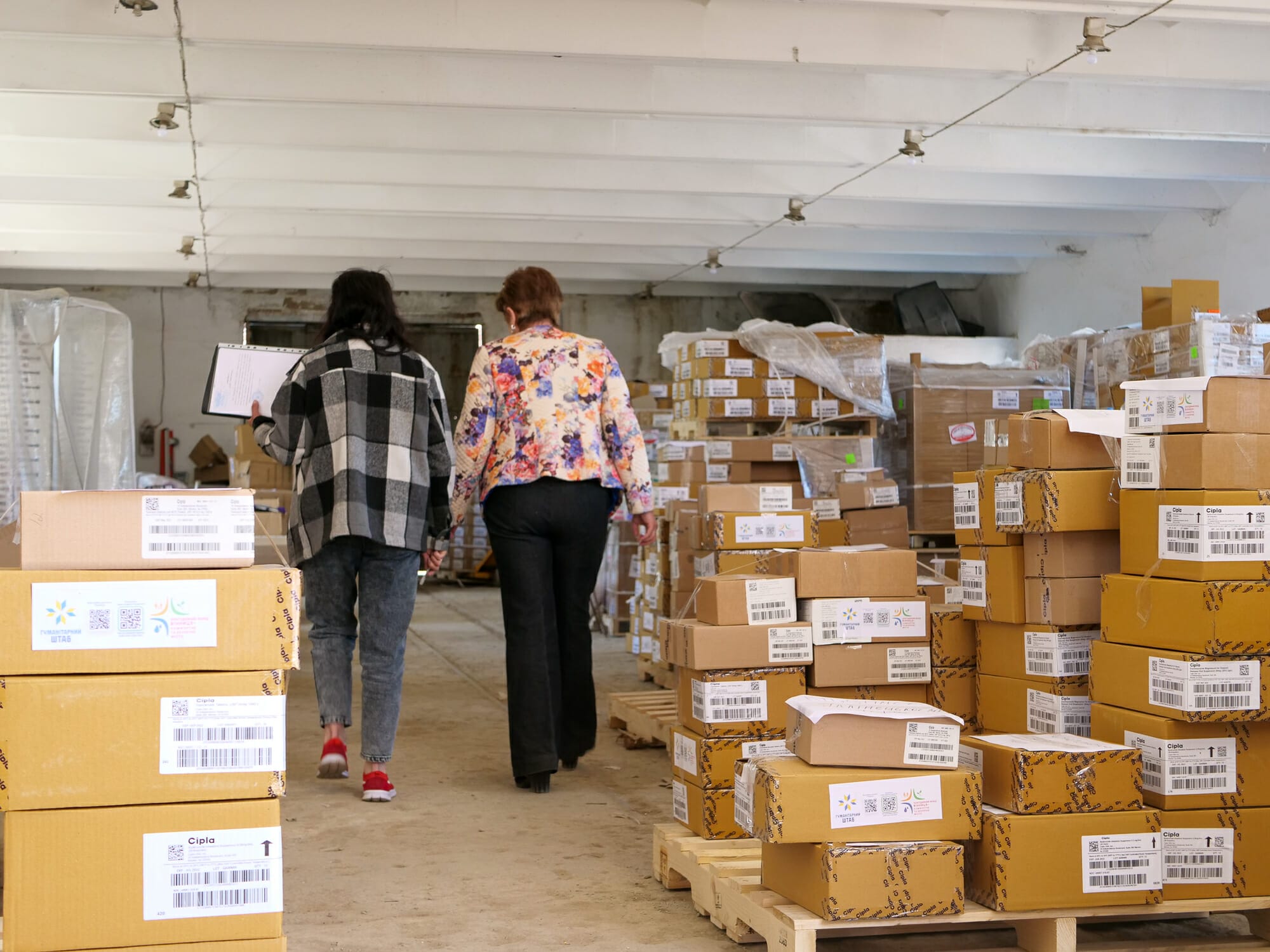
Vinnytsia: Ukrainian humanitarian aid hub
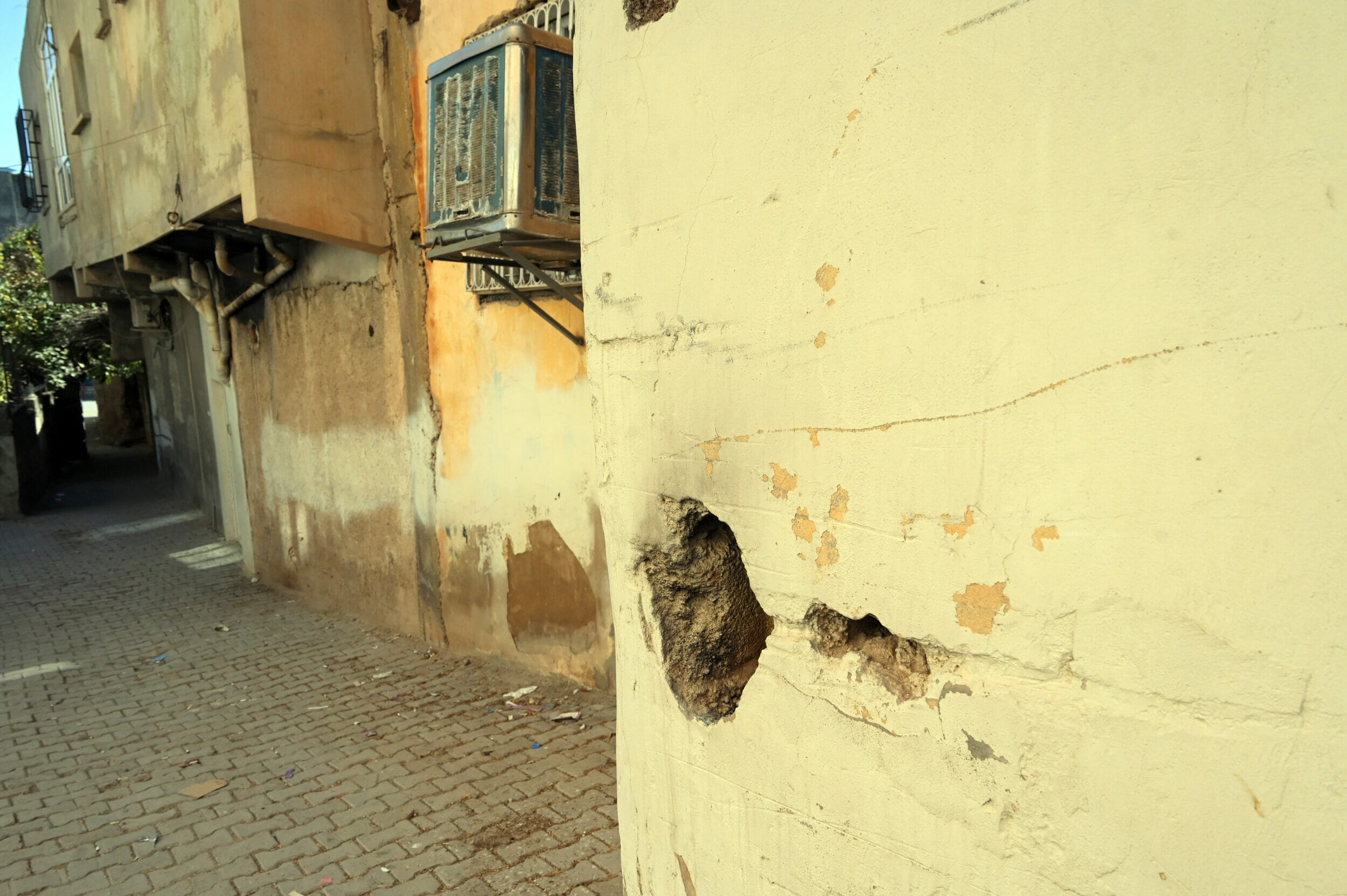
Nusaybin: In constant fear of the state
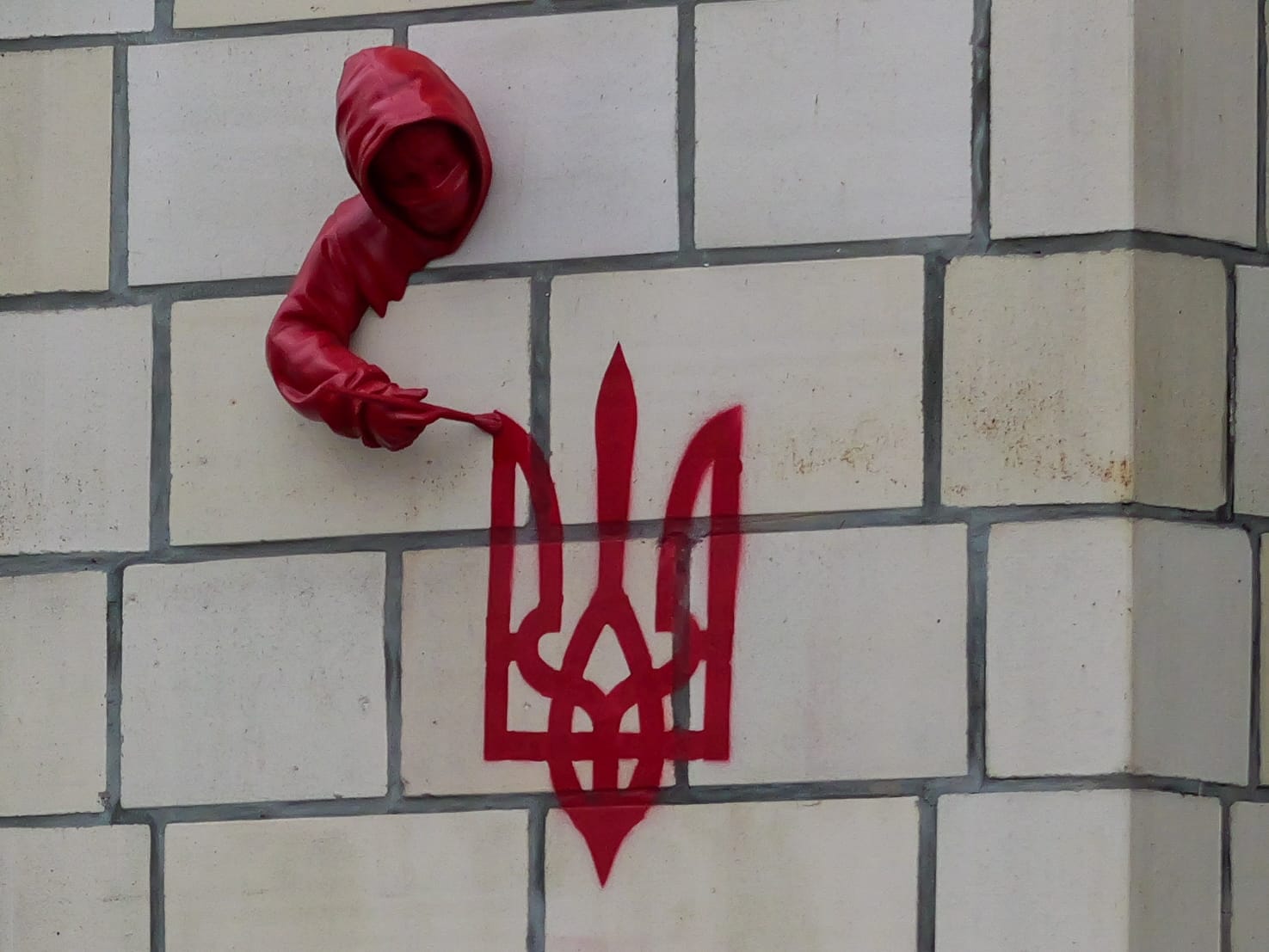
Political scientist explains what opportunities Trump brings for Ukraine
[mc4wp_form id=239488]

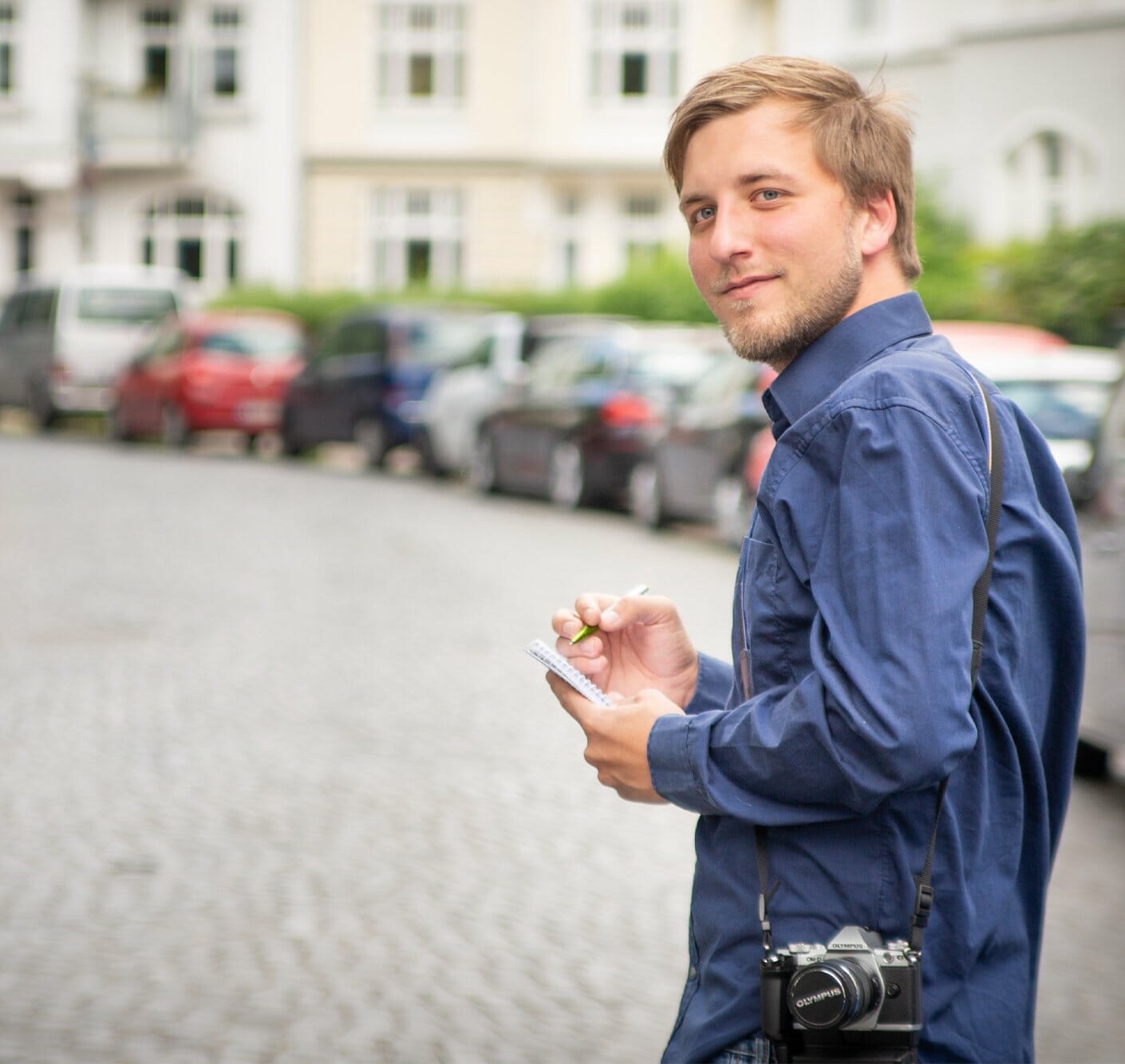
Leave a Reply
You must be logged in to post a comment.